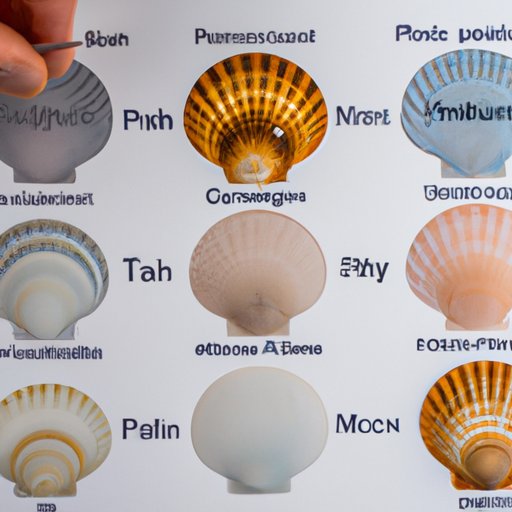Introduction
Scallops are a type of mollusk that is prized for its sweet, briny flavor and delicate texture. This seafood delicacy has been enjoyed by cultures around the world for centuries. Scallops are also packed with essential vitamins and minerals, making them a nutritious and delicious addition to any meal.
Nutritional Benefits of Eating Scallops
Scallops provide a number of nutritional benefits. They are an excellent source of lean, high-quality protein and are low in fat and calories. One 3-ounce serving of cooked scallops contains approximately 21 grams of protein and just 85 calories. Scallops are also a good source of vitamins and minerals, including omega-3 fatty acids, vitamin B12, selenium, and phosphorous.

Exploring the Health Impact of Eating Scallops
Eating scallops can have numerous health benefits. Studies have shown that consuming seafood may reduce the risk of heart disease and stroke. One study found that consuming three to four servings of seafood per week was associated with a 10% to 15% reduction in the risk of cardiovascular disease. The omega-3 fatty acids found in scallops may also help to lower blood pressure and reduce inflammation.
In addition to their potential heart-health benefits, scallops may also help with weight loss. A study published in the Journal of Nutrition found that people who ate seafood at least once a week were more likely to achieve a healthy body weight than those who rarely or never ate seafood. The high protein content of scallops may also help to reduce appetite and increase feelings of fullness.

How Scallops Can Help You Reach Your Health Goals
Adding scallops to your diet is a great way to get the nutritional benefits they offer. When buying fresh scallops, look for ones that are firm and white in color. If you’re purchasing frozen scallops, make sure they are individually wrapped and free from discoloration or odor. For the most nutritional benefit, opt for wild-caught scallops over farm-raised.
When it comes to serving size, the American Heart Association recommends two 3.5-ounce servings of seafood per week. This translates to roughly one-third cup of cooked scallops per serving. If you’re looking to add some extra flavor to your scallops, try adding some herbs or spices such as garlic, lemon, or dill.

Comparing the Nutrition of Scallops to Other Seafoods
When comparing the nutrition of scallops to other types of seafood, it’s important to consider the levels of omega-3 fatty acids. Omega-3 fatty acids are essential for human health and play an important role in brain function, heart health, and reducing inflammation. Wild-caught salmon and tuna are both high in omega-3s, but scallops are an excellent source as well, with one 3-ounce serving containing 892 milligrams of omega-3s.
When it comes to vitamins, scallops are a good source of vitamin B12, which helps to support red blood cell production and maintain a healthy nervous system. One 3-ounce serving of scallops contains approximately 11 micrograms of vitamin B12, which is nearly half of the recommended daily value. Scallops are also a good source of selenium, which plays an important role in protecting cells from damage caused by free radicals.
The Role of Scallops in a Balanced Diet
Including scallops as part of a balanced diet is important for optimal health and wellness. Scallops can be enjoyed on their own or added to salads, soups, and stir-fries. To ensure you are getting the most out of your scallop meal, pair it with other nutrient-dense foods such as leafy greens, whole grains, and legumes.
If you’re looking to add more scallops to your diet, there are a few tips to keep in mind. First, don’t overcook them. Scallops tend to become rubbery and tough when cooked for too long. Also, be sure to use a light hand when seasoning scallops. They are naturally flavorful, so a little goes a long way.
Conclusion
Scallops are an excellent source of lean, high-quality protein and are low in fat and calories. They are also a good source of vitamins and minerals, including omega-3 fatty acids, vitamin B12, selenium, and phosphorous. Eating scallops can have numerous health benefits, including reducing the risk of cardiovascular disease and aiding in weight loss. To get the most out of your scallop meals, pair them with other nutrient-dense foods and season lightly. Incorporating scallops into your diet is an easy and delicious way to improve your overall health and wellbeing.
(Note: Is this article not meeting your expectations? Do you have knowledge or insights to share? Unlock new opportunities and expand your reach by joining our authors team. Click Registration to join us and share your expertise with our readers.)
